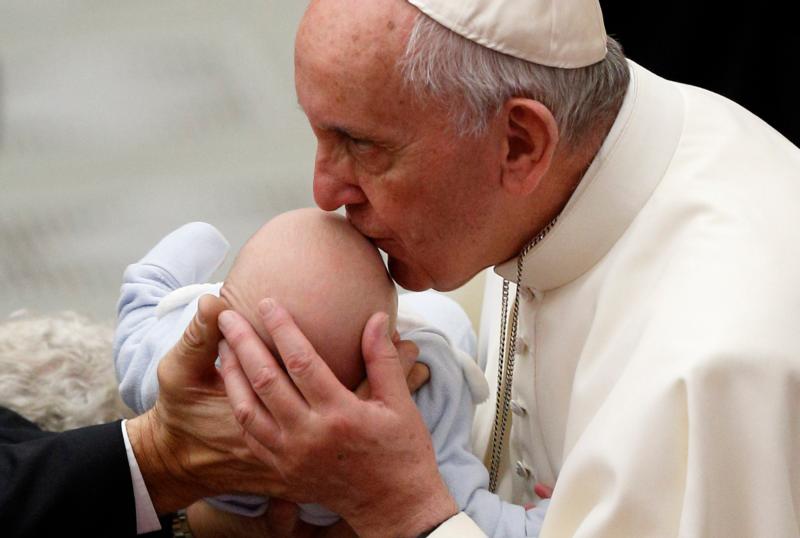VATICAN CITY (CNS) — God has compassion for everyone, which is why he sent his only son to heal and renew humanity, Pope Francis said in a homily.
There is a difference between compassion and pity, he said at the Mass in the chapel of his residence Oct. 30.
“I can feel pity for a dog that is dying,” he said, but compassion, especially God’s compassion, is a whole different thing. It is putting oneself in the other’s place “with the father’s heart.”
[hotblock]
That is why God sent his only son to live and dwell among humanity — to be close to them and their problems, he said.
“Jesus healed people, but he was not a ‘shaman.’ No. He healed people as a sign, as a sign of God’s compassion, to save them, to bring the lost sheep back” to the fold, the pope said.
God puts his heart into it, into each and “every one of us. And when God forgives, he forgives like a father and not like a courthouse clerk who reads out the sentence and says: ‘Acquitted for insufficient evidence.'”
From his very own heart, God forgives because that is where he holds the person, he said.
He sent Jesus in order to bring the good news, “to free those who feel oppressed,” he said, to put himself in each person’s situation, “freeing us of our sins, of our evil and to carry us.”
“This is what a priest does,” the pope said.
Like Jesus, a priest is moved and becomes involved in the lives of the people, he said.
“How many times — and then we have to go and confess — do we criticize those priests, the ones who are not interested in what is happening in their congregation, who are not concerned?”
“No, that is not a good priest. A good priest is the one who becomes involved” in all the “human problems” out there, he said.
PREVIOUS: Marked with the sign of faith, we’re bound in life and death
NEXT: Gospel readings shouldn’t be edited at will



I think God sent his only Son to atone for our sins and thus give us a second chance to get to heaven. Also to teach us the way to get to heaven and to avoid hell. That was the object of God’s compassion for us. Salvation.
It was not so much to live and dwell among humanity — to be close to them and their problems, but rather it was to set an example for us, and to teach us, so we would know the difference between right and wrong and could plot a righteous path that would lead us to heaven.
And what did Jesus say was the path to salvation? Was it not first and foremost to honor God fully and to obey God’s Law? Is not this in a nutshell the 10 Commandments? That we must obey God’s rules because in spite of God’s infinite love and compassion for us, He still requires of us to freely choose Him? To acknowledge and accept His conditions for everlasting life? To follow His moral rules?
I wonder why the Catholic Church is so fixated on only the second part of the road to salvation? The positive side of the salvation coin. The Golden Rule and the Sermon on the Mount side. Are not both sides of the coin required to gain everlasting life?
As an institution the Catholic Church has a much different set of requirements than individual laity. I think this distinction has been lost on the Church. The Church is acting as if it is part of the laity. Like being “one of the boys” when in fact the Catholic Church is supposed to be the team coach.
How can you teach and discipline a team to a championship when you think and act as if you are one of the team members? The Catholic Church’s job is to get the entire team to the spiritual winner’s circle. To heaven! That’s it!
The Catholic Church in the West has forgotten that as the team coach it must serve as both cheerleader and disciplinarian. Since Vatican II the Western Church as decided to take the easy way out and only be a cheerleader. Love, mercy, compassion, collegiality, compromise, tolerance, and even flagrant rule bending. Anything to keep the team happy. And what have the actual results been for the team? Has the team been winning or losing?
It is strange that Pope Francis’ seems to be unaware of this self evident fact.
If Pope Francis is truly looking for a winning team strategy and the guiding “whisper of the Holy Spirit” perhaps he should be looking to the parts of the Catholic Church that are growing and prospering under more traditional orthodoxy, and also the many Christian evangelical sects that are flourishing and attracting many Catholics to their more traditional Gospel message.